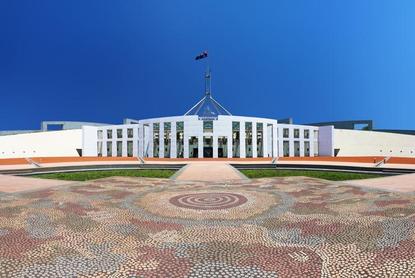Keenan: Government must 'keep its nerve' when rolling out controversial technology
- 29 October, 2018 12:46

Minister assisting the prime minister for digital transformation Michael Keenan used a keynote speech at the Gartner Symposium on the Gold Coast this morning to have a dig at those who put forward "catastrophic scenarios" about government technology roll-outs.
Keenan, also human services minister, was touting the success of ePassport SmartGates, now standard in airports across Australia. Although the initiative is now considered a success, at the time the proposal attractive criticism from privacy and civil society groups.
"There was enormous resistance amongst the public," Keenan said before correcting himself, adding "and, sorry, not amongst all the public, but there was enormous resistance amongst a section of the public."
"[They] were very concerned we'd be using biometric information to identify people. And there was all sorts of catastrophic scenarios put about what this might mean if we rolled out these smart gates at the border," he added.
The ePassport project kicked off in 2005 by then-Foreign Minister Alexander Downer and was intended to bring passport control and border processing into' the 21st century while securing the identity of millions of Australian citizens'.
The digital face-recognition technology initially went live in Brisbane airport in 2007 and has since been implemented in all of the Australia's international airports.
In July last year, the government awarded a three-year, $22.5 million contract to Vision-Box Australia to roll out facial recognition services that will allow some travellers at Australian international airports to be processed without the need to produce their passports.
Keenan listed the benefits of ePassport SmartGates, including that they had turned a 45 minute process into something that can be done "literally in seconds".
"It's a great example I think of how important it is to keep your nerve when rolling out new technology, and to continue to make the arguments about why you're doing it and what you hope to achieve," Keenan said.
The government is currently facing down resistance from both the business community and the general public around its proposed Telecommunication and Other Legislation Amendment (Assistance and Access) Bill 2018.
A number of measures in the bill will increase police access to data on electronic devices and services — including expanding the system of covert computer access warrants, which are currently available only to ASIO.
It also includes provisions that would introduce new requirements for service providers to cooperate with investigations. In some cases, tech companies could be compelled to build entirely new capabilities sought by police or intelligence agencies.
Keenan did not mention the bill explicitly, but did note the need for government to protect citizens.
"As a government, we have a duty to learn and embrace advances in innovation. In addition we need to keep in mind the broader role and expectations of our people, to keep them safe and continue to protect their privacy," he said.
The author travelled to Gartner Symposium on the Gold Coast as a guest of Gartner.

